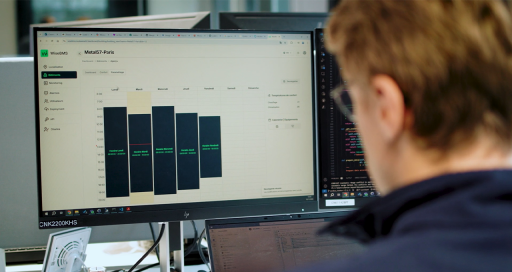Data Act: what are its implications for tertiary buildings?
Reading time: 4 min
The Data Act, which comes into force in September 2025, will bring significant changes to the production, use and value of data in the European Union. Businesses and professionals in the building sector will play a key role in these transformations.

Published in January 2024, the Data Act creates a framework within the European Union for openness and sharing of data generated in every economic sector, and industrial sectors in particular. The European lawmakers’ intent is clearly stated: to stimulate the development of a competitive and fair market for data and so encourage the creation of innovative services.
It will also facilitate user access to generated data, allow public bodies to use data held in the private sector, and offer protection against unreasonable data sharing contracts and illegal access or transfer requests by authorities in other countries for non-personal data held in the EU.
Although the Data Act does not come into force until 11 September 2025, it will certainly bring significant changes to the production, use and value of data.
A key role in the transformations
Businesses and professionals in the building sector will play a key role in these transformations. Regulations governing energy efficiency will encourage buildings to install more sensors and connected objects to precisely monitor and manage their various energy-consuming devices. From 1 January 2025, the BACS (Building Automation and Control Systems) decree, in line with the so-called “tertiary decree”, makes it mandatory to install a building automation system (BAS) in any building that uses more than 290 kW of power.
The Data Act opens up a vast space for discussion about what data governance should look like.
The increasing power of BAS solutions reflects the increased volume of building data to be produced and processed in the future. The proliferation of IoT systems performing various functions in offices and the systematic installation of electric vehicle charging infrastructure (EVCI) around and inside tertiary buildings are contributing to this burgeoning digitalisation of buildings.
Bringing stakeholders together
The use of data from digital systems in buildings will be a crucial concern for the asset managers of the future. But not only for them, because a key feature of the tertiary building sector is that stakeholders work closely together – property managers, tenants, maintenance providers, etc. – all of whom are affected by the spirit and letter of the Data Act.
By establishing the right in principle to access, use and reuse data, the Data Act reopens the question of who owns data and opens up a vast space for discussion about what data governance should look like. And this cannot neglect the crucial issue of cybersecurity. The explosion of data will not only affect the function, use and value of buildings – it will make them increasingly vulnerable, exposed to the double risk of internal negligence in digital hygiene and the external threat from cyber attackers.
Together at one table
There is therefore a pressing need to bring all building stakeholders together at one table to discuss governance, cybersecurity, sovereignty, sharing, data transparency, etc. Who does what? Who is responsible in the event of a cyber attack? Is the risk covered, and by what type of insurance (cyber or professional indemnity)? How can asset managers create a building-by-building map of their cyber risk? And for their entire portfolio? What budget should be allocated to data management and protection? Who pays?
VINCI Energies has a central role in the issues raised by the Data Act. We must, along with all stakeholders in the real estate value chain, take command of this situation, to drive the debate, ensure that our assets are robust and develop our industry.
12/12/2024



